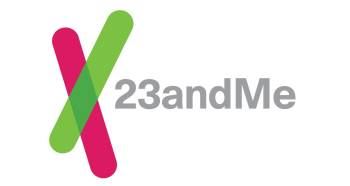23andMe has a Blog article that I recommend as required reading for every genealogist. It will expand your outlook beyond looking for ancestors (only) to helping yourself and your loved ones enjoying life more and, in some cases, possibly even saving lives.
Here's the introduction:
 Family members share DNA and have other things in common, like where they live, what they eat, or how active they are. All these factors can play a role in determining health, which makes knowing your family health history so important. It’s important to acknowledge that depending on family circumstances, not everyone has access to their family health history, but there is a lot of value in understanding how it can benefit you.
Family members share DNA and have other things in common, like where they live, what they eat, or how active they are. All these factors can play a role in determining health, which makes knowing your family health history so important. It’s important to acknowledge that depending on family circumstances, not everyone has access to their family health history, but there is a lot of value in understanding how it can benefit you.
So what do we mean when we refer to your family health history? This is an actual record of current and past medical conditions for you, your biological family, and your healthcare provider to use to manage your health.
Why is a family health history important?
This one is easy!
Health conditions can run in families. Knowing your family health history can help a doctor, clinician, or other healthcare professional understand your risk of developing certain conditions.
Family health history also helps them decide how often you need checkups and other preventative screenings. Some people, like 23andMe customers Mary and Tracy, have been inspired to make positive lifestyle changes after learning more about their family history.
What type of medical information matters?
During a genetic counseling session, gathering family health history is central. A genetic counselor might ask about relatives in four generations of your family. Starting with you, they might ask about your parents, grandparents, children, siblings, half-siblings, aunts, uncles, and first cousins. The names of any medical conditions and the general age of diagnosis are collected.
If you are gathering this information yourself and you or someone in the family does not know the official medical term or exact ages when conditions were diagnosed, use your best guess. Family health history is kinetic. You can and should expect to update it over time.
How do you talk to relatives about medical history?
Medical history can be a sensitive topic. It might be more challenging for some people and some families to talk about family health history. Read these tips we’ve gathered for how you can approach family health questions in a way that is both careful and considerate.
What about adoptees and donor-conceived individuals?
If you’re adopted or donor-conceived, your family health history might be limited or take more time to collect. This is where other information, like that from 23andMe, can help fill in gaps for adoptees and others. Access to a more complete and accurate family health history is important to many people. In fact, it can be the main reason some, including adoptees and those who are donor-conceived, decide to start searching for DNA relatives.
What do you do with family health history once you have it?
A family health history gathers information about genetics, lifestyle, and environment in one place. Learning more about the medical history of your close relatives can give you insights into what conditions could be common in your family and can help you make healthier choices. Just remember to talk to a healthcare professional before making any changes. Learn more about genetic counseling and how genetic counselors at 23andMe are working at a broader level to help.
You can read the full article at: https://tinyurl.com/yvv2xruu.